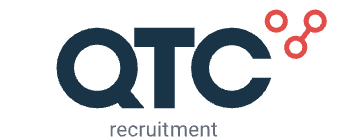Written by Alisa - 4 Minutes reading time
An unusual drugmaker raises north of $100M for ecstasy-based PTSD therapy

Lykos Therapeutics, formerly known as MAPS Public Benefit Corp., recently submitted its MDMA capsules for FDA approval, following positive results from two studies.
A California-based company has raised tens of millions of dollars to support its mission of bringing an ecstasy-based therapy to patients with post-traumatic stress disorder.
MAPS Public Benefit Corp. formed a decade ago as a subsidiary of the Multidisciplinary Association for Psychedelic Studies, a nonprofit that both researches and promotes the use of psychedelics for mental health. In the years since, the subsidiary has developed a capsule of midomafetamine — known more commonly as MDMA or ecstasy — that it recently submitted for Food and Drug Administration approval.
On Friday 5th of January, the company said it had raised north of $100 million through a Series A financing round that received more investor interest than expected. The sum included the conversion of previously issued convertible notes.
Leading the round was another group, Helena, which describes itself as network of high-profile members working to “implement solutions to critical societal challenges.” Helena has more than 120 members, including physician Deepak Chopra, researcher Mark Dybul and actress Zoe Saldana, and funds a variety of buzzy projects, like an “underwater version of the International Space Station” or a technology meant to pull greenhouse gases from the atmosphere.
In the wake of the new fundraising, MAPS Public Benefit Corp. has made several changes. The company is renaming itself Lykos Therapeutics, and appointed Suprotik Basu, managing partner of Helena Special Investments, to its board. Lykos’ new eight-member board also includes CEO Amy Emerson as well as six appointees from MAPS.
The support from Helena “comes at this critical time as we are transitioning from a development-stage company to one focused on commercialization of the potential first psychedelic-assisted therapy,” Emerson said in a statement.
Lykos intends for its MDMA capsules be used in combination with psychological intervention, which includes talk therapy and “other supportive services provided by a qualified healthcare provider.” The company last month formally submitted an approval application that included results from two late-stage clinical trials, both of which hit their main and secondary goals by showing Lykos’ drug reduced PTSD symptoms and functional impairment.
Results were subsequently published in the journal Nature Medicine.
Those results, combined with the new funding and approval application, “position Lykos to continue its journey to help transform mental health, and to help address the large unmet need for the estimated 13 million Americans who suffer from PTSD,” Basu said in the statement.
The FDA has until mid-February to decide whether it will review Lykos’ application.
Aside from PTSD, Lykos is also sponsoring a clinical study that will evaluate MDMA in people with certain eating disorders.
In a Jan. 2 note to clients, Jefferies analyst Andrew Tsai wrote that the “psychedelic landscape seems to be evolving favorably” for drugmakers. He pointed to last summer, when the FDA issued draft guidance on the testing and development of psychedelics, as evidence the agency is taking a more considered view of these therapies.
Tsai also noted how Johnson & Johnson’s Spravato, a form of ketamine first approved in 2019 for treatment-resistant depression, is on track to hit $725 million in annual sales.
Like Helena, investors have started to see a greater upside to financing small biotechnology companies that are dedicated to psychedelics research.
In 2020, the U.K.-based pharmaceutical company Compass Pathways raised nearly $150 million through an initial public offering, as investors bought into its mission of treating mental health conditions like PTSD and depression with psilocybin — a psychedelic compound found in many mushroom species. A late-stage study of Compass’ main drug, named COMP360, should produce results this year.
Atai Life Sciences, which holds an equity stake in Compass, raked in $225 million through its own IPO in 2021, though shares of the German biotechnology company now trade at about $1.60 apiece. Atai is targeting a range of mental health conditions with its drug programs, one of which is an MDMA-derived therapy in early-stage testing for PTSD.
Interested in the dynamic Biotechnology Industry? Let our experts guide your career. Explore how we can help you today! Discover the possibilities here.
Also published on Biopharmadive.com
Want to stay informed about current Life Science and recruitment news on a regular base? Then register here for free.
